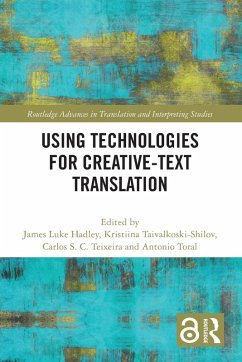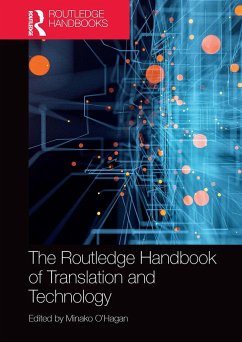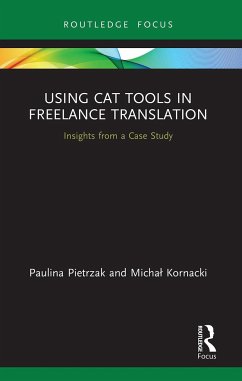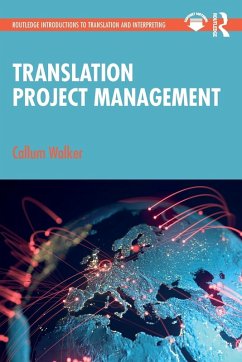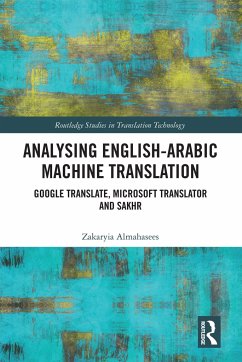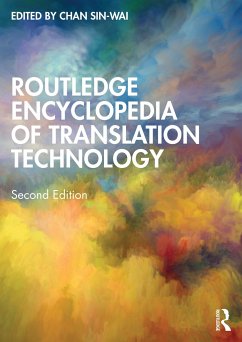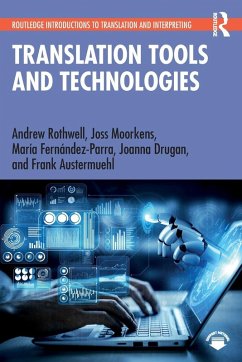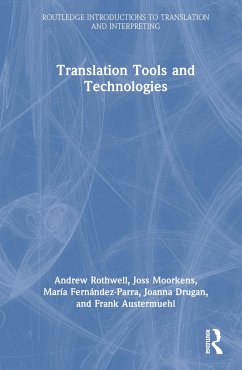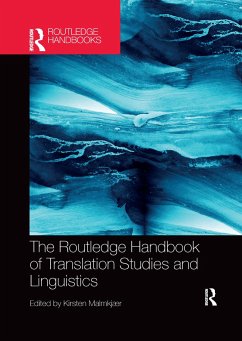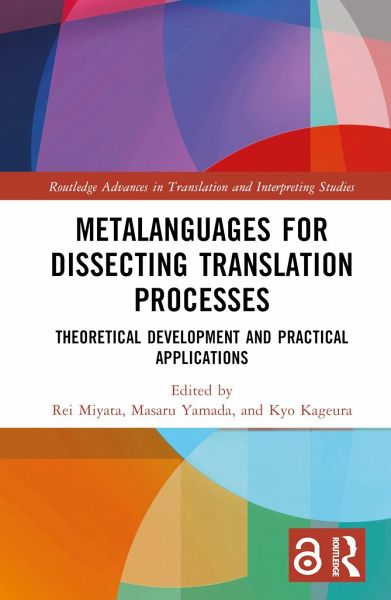
Metalanguages for Dissecting Translation Processes
Theoretical Development and Practical Applications
Herausgegeben: Miyata, Rei; Yamada, Masaru; Kageura, Kyo
Versandkostenfrei!
Versandfertig in 6-10 Tagen
154,99 €
inkl. MwSt.

PAYBACK Punkte
77 °P sammeln!
This edited volume covers the development and application of metalanguages for concretely describing and communicating translation processes in practice.In a modern setting of project-based translation, it is crucial to bridge the gaps between various actors involved in the translation process, especially among clients, translation service providers (TSPs), translators, and technology developers. However, we have been confronted with the lack of common understanding among them about the notion and detailed mechanisms of translation. Against this backdrop, we are developing systematic, fine-gra...
This edited volume covers the development and application of metalanguages for concretely describing and communicating translation processes in practice.
In a modern setting of project-based translation, it is crucial to bridge the gaps between various actors involved in the translation process, especially among clients, translation service providers (TSPs), translators, and technology developers. However, we have been confronted with the lack of common understanding among them about the notion and detailed mechanisms of translation. Against this backdrop, we are developing systematic, fine-grained metalanguages that are designed to describe and analyse translation processes in concrete terms. Underpinned by the rich accumulation of theoretical findings in translation studies and established standards of practical translation services, such as ISO 17100, our metalanguages extensively cover the core processes in translation projects, namely project management, source document analysis, translation, and revision.
Gathering authors with diverse backgrounds and expertise, this book proffers the fruits of the contributors' collaborative endeavour; it not only provides practicable metalanguages, but also reports on wide-ranging case studies on the application of metalanguages in practical and pedagogical scenarios. This book supplies concrete guidance for those who are involved in the translation practices and translation training/education. In addition to being of practical use, the metalanguages reflect explication of the translation process. As such, this book provides essential insights for researchers and students in the field of translation studies.
The up-to-date versions of the metalanguages, related materials, and the corrigendum for the book content are available on our project website: https://tntc-project.github.io
In a modern setting of project-based translation, it is crucial to bridge the gaps between various actors involved in the translation process, especially among clients, translation service providers (TSPs), translators, and technology developers. However, we have been confronted with the lack of common understanding among them about the notion and detailed mechanisms of translation. Against this backdrop, we are developing systematic, fine-grained metalanguages that are designed to describe and analyse translation processes in concrete terms. Underpinned by the rich accumulation of theoretical findings in translation studies and established standards of practical translation services, such as ISO 17100, our metalanguages extensively cover the core processes in translation projects, namely project management, source document analysis, translation, and revision.
Gathering authors with diverse backgrounds and expertise, this book proffers the fruits of the contributors' collaborative endeavour; it not only provides practicable metalanguages, but also reports on wide-ranging case studies on the application of metalanguages in practical and pedagogical scenarios. This book supplies concrete guidance for those who are involved in the translation practices and translation training/education. In addition to being of practical use, the metalanguages reflect explication of the translation process. As such, this book provides essential insights for researchers and students in the field of translation studies.
The up-to-date versions of the metalanguages, related materials, and the corrigendum for the book content are available on our project website: https://tntc-project.github.io



